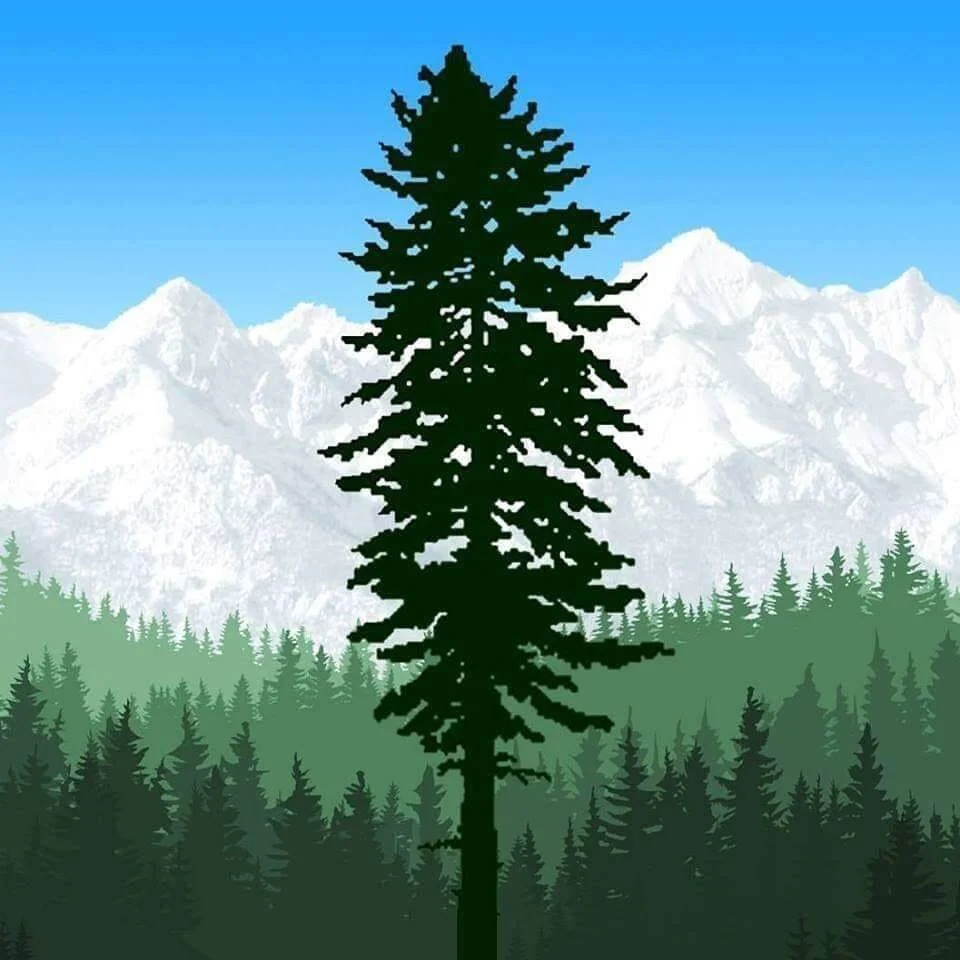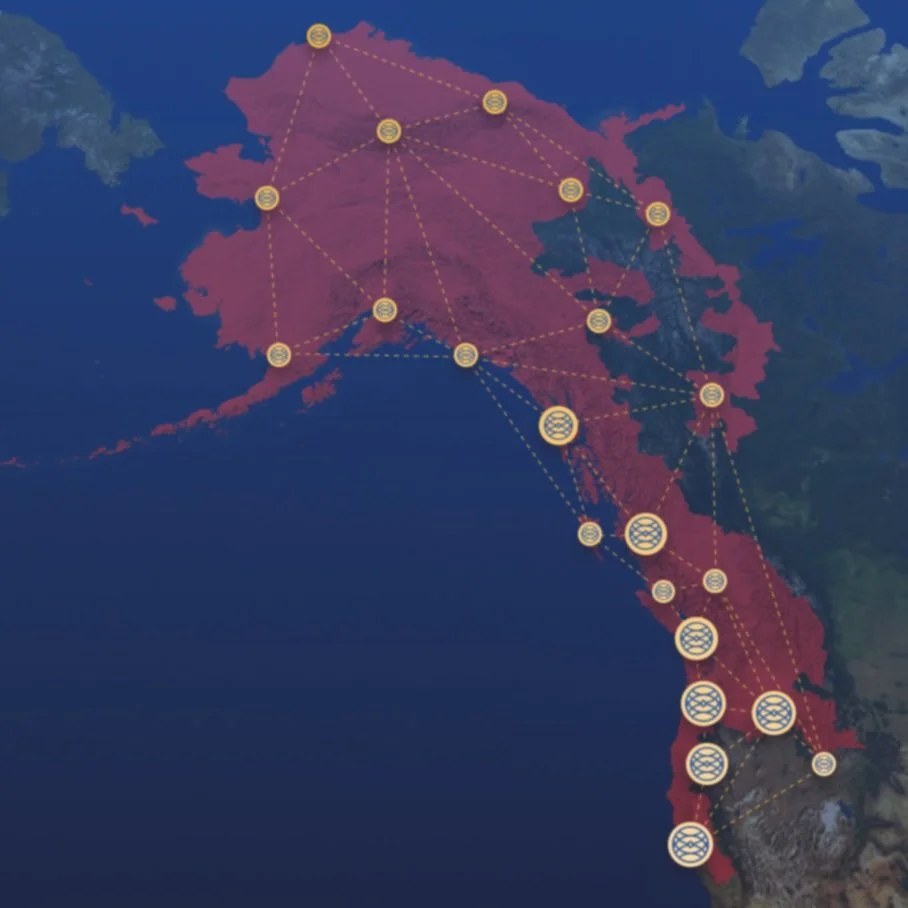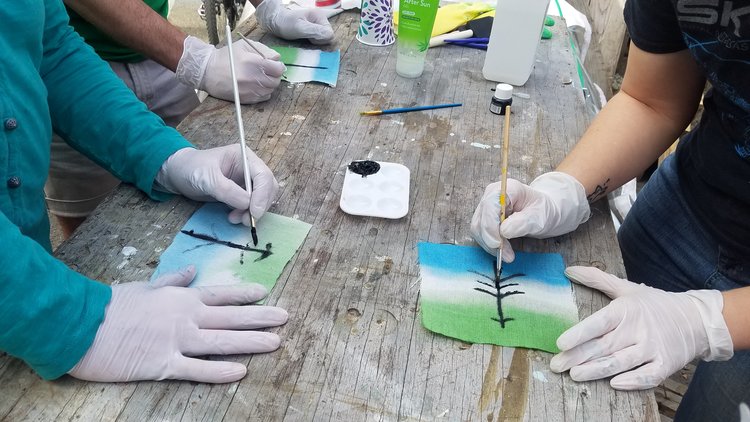Remembering Mike Barnes, who passed away last Sunday. Founder of RAIN and the Alliance in Portland, and a deep bioregionalist & Cascadian.
Announcing Cascadia ZOOM Organizing Calls
4 Ways Cascadians Can Respond Bioregionally to COVID-19
As the COVID-19 outbreak disrupts nearly every aspect of our daily lives, Cascadians should double-down on bioregionalism to better support our impacted communities and mitigate health risks.
What Does Bioregionalism Have to do with COVID-19?
Bioregionalism is a philosophy and lifestyle which promotes personal and community well-being by using naturally defined borders, such as waterways, as a structure for making sustainable choices. Bioregions are considered the largest region one can reasonably call home, encompassing familiar fauna, flora, and human-based culture or traditions. A de-colonized way of looking at the land, bioregionalism encourages one to ask how their actions better or preserve the place that they live, not only for themselves but for their neighbors and future generations, regardless of arbitrary state or federal borders drawn on by colonizers. Cascadia is just one of many bioregions of the world and stretches from Alaska down to Northern California, with borders shaped by the Snake, Frasier, and Columbia rivers and Pacific Ocean (also known as the Salish Sea).
Cascadia and COVID-19 are now deeply intertwined, with Cascadia having a large portion of the COVID-19 cases reported in the U.S. and with Cascadian businesses and citizens currently taking the brunt of the economic fallout of the virus. Cascadia is also on the world stage, leading the charge against COVID-19 through vaccine research, providing technology infrastructure through which people are staying connected and getting their news, and setting an example of how to respond to this sudden pandemic.
At its root, biroegionalism asks people to deeply consider their connection to the place they live and to actionably engage in ways that give back to one’s own community: decreasing climate impact, eating locally-grown foods, using local energy sources (like solar, water), supporting small and independent community businesses, and generally being more self-reliant are tokens of the bioregional movement.
So, how can Cascadians respond bioregionally to COVID-19?
1) Support Local: It doesn’t just positively impact your community. It also keeps you safer!
COVID-19 can live on surfaces for days. How many people have touched that last bag of frozen peas in the giant box store’s freezer aisle? The packer, the quality controller, the truck loader, the truck unloader, the stocker, the person (or two, or three) who picked it up and put it back before you got to that aisle yourself?
Social distancing is a great way to decrease your potential exposure to the virus, as is shopping at small mom-and-pop type businesses which have less employees, less foot traffic, and fewer items/surfaces to manage. This will not only decrease how many people you may come into contact with while purchasing what you need, but it should decrease the amount of “touches” an item went through before it got to you.
Best of the best? Buy from a local farmer, baker, or butcher who raises, makes, or handles their product themselves!
Many local businesses are struggling financially due to the economic impact of COVID-19. Let’s be real: Kroger doesn’t need your money – your neighbors do! Your patronage can go a very long way in keeping a bioregional option available in your neighborhood. This is especially true of local restaurants. If you’re ordering take-away, skip the chain and go for your closest local pizza joint.
No matter what, please wipe down and/or wash your produce, food items, and other purchases once you’ve bought them. Safety first!
2) In Times of Crisis, We Need Our Neighbors
Who do you think you’d have contact with first in an emergency: your neighbors who are also affected by it, or the federal government?
This NPR story does a great job laying out why and how neighbors and local pals increase the odds of surviving an emergency situation: local knowledge, personal knowledge of each other, and a shared love of place are all key factors which contribute to how neighborly connections make it more likely that you come through a disaster just fine.
Some of your neighbors might not be able to go outside right now – Hell, you might not be able to go outside right now. Having a network of people who can help each other and that is close by might mean the difference between getting hard-to-find items and going without (your neighbors are probably more likely to loan you some TP (and sooner) than FEMA is). Get connected and stay connected during these trying times. Identify if any neighbors need additional assistance or raise the flag if you are in need of additional assistance.
Plus, sharing the sense that we’re all in this very real crisis together can be really good for one’s mental health. Say hello, smile, and wave from your porch!
3) Buying Bulk? Think Bioregionally and Go Plastic-Free
Buying bulk items is a great way to get affordable, healthy foods with a longer shelf life. Plus, they are less likely to have been exposed to someone unknowingly carrying COVID-19 due to being in enclosed containers.
If you are hitting the bulk aisle while stocking up for a period of social distancing, go plastic-free! Bring jars or other containers from home. If you don’t have any, buy items in jars (pickles or peanut butter, for example) and later recycle the containers into bulk-food holders during your next trip to the store. Bonus: Jars are easy to wipe down once you get home and are easy to keep clean!
Consider selecting bulk items that have smaller global impact, such as foods that were grown locally or that take less water to grow (oats are a great choice!). It’s our duty as bioregionalists to think about the long-term impact of our choices and how they will affect our bioregion and future generations.
Did you know that there might be local, bioregional options nearby for your bulk food needs? Scoop in Seattle is once example of a waste-free bulk store where you can fill your self-isolation food needs without filling the landfill at the same time. Why not break from your routine and try a new, independent bulk store the next time you need to stock up on items?
4) Time to DIY (And Stay Inside)
If you are one of the many people who has suddenly found themselves at home for the next few weeks, take the opportunity to learn a new skill or become more self-reliant.
You could plant an herb garden or other foods – even just a potted veg or two! – or could learn to sew (I am even thinking of learning to make my own face mask, just in case). Learn to fix your own toilet or leaky faucet. Make your own cleaning supplies. Even learning to make a fire from scratch, learning to tie new knots, or how to make your own soap could all be skills that either one day come in handy during the apocalypse, or could simply help you reduce waste in the future.
Time spent becoming more self-sufficient is never wasted! And, time spent inside and away from others in the number one defense we have right now against the unintentional spread of the COVID-19 virus. Do your part by staying in and learning something new.
Cascadians, It’s Time to Double-Down on Bioregionalism
As Cascadians, you know that bioregionalism is the best way to live sustainably, decrease climate impact, and keep our communities alive and thriving.
Now, it’s time for our bioregional mindsets to assist us with mitigating the risks of COVID-19, both for ourselves and our fellow Cascadians.
Visiting Where Bioregions were Born: The Planet Drum Foundation in San Francisco
We’ve been very excited to be visiting with Judy Goldhaft at the Planet Drum foundation in San Francisco. Planet Drum Foundation was founded in San Francisco, CA in 1973, and with an association of community activists and ecologists worked to develop the concept of a bioregion, from which the Cascadia movement grew out of in the 1980's. Planet Drum works to research, promote and disseminate information about bioregionalism, a grassroots approach to ecology that emphasizes sustainability, community self-determination and regional self-reliance.
Peter Berg was a social revolutionary thinker, writer, ecologist, environmental activist and founder of Planet Drum Foundation who passed away at died on July 28, 2011
It's been an absolute treat to talk with Judy about the history of Planet Drum, and to be able to read and learn about the more than 45 years that they have been active. She's loaded us up with a huge stack of early Raise the Stakes newsletters and other wonderful proceedings. We are excited to bring back some of this knowledge and to scan, share and incorporate this more strongly into our organizing work in Seattle and elsewhere.
Cascadia represents bioregionalism at California Unity Conference
7th Cascadia Poetry Festival will be May 1-3 2020 on San Juan Island
For the 7th iteration of the Cascadia Poetry Festival, SPLAB moves its bioregional cultural investigation to The Multiverse on San Juan Island. A gallery and island cultural center run by Jennifer, Ian and Gavia Boyden will provide a more intimate setting for festival attendees to go deeper into the intersection of poetics and bioregionalism.
How to Vote Cascadia
Washington State Working to Become the Largest Electrified Ferry Fleet in the World
It's time for a Cascadia Political Movement.
Introducing the Department of Bioregion: By Trevor Owen
Your Guide for Dougsgiving, November 28th
New Cascadia Membership Designs Are Here!
We love Cascadia, believe in bioregionalism as a philosophy to save our region and planet, and are tired of the craziness and insanity that has become commonplace in our world today. We want to be able to directly impact the issues that we care about, and so those living on this planet can have a real life and livelihood better than our own, rather than worse.
Our New Diplomat Departments Forming for 2020
As we enter into 2020, our Cascadian Diplomats are organizing themselves into six different core departments they have deemed to be the highest priority for building the Cascadia movement, the independence of the Cascadia Bioregion, building a network of bioregional movements around the world, and improve the well being and liveability of our bioregion.
New fundraiser for Forests for Climate Resilience this Saturday in Portland, Oregon.
Join Forests for Climate Resilience and Forest Defenders for a gathering of #Forest Folk, Saturday in Portland, Oregon. The night will feature music, forest updates and movement news!
2020 Cascadia Grains Conference scheduled for January 18 & 19 in Olympia, Washington
Coming Home: A New Map Telling a New Story of this Place
Department of Bioregion has a wonderful meeting with Bioregional Learning Center of Devonshire
The Cascadia Department of Bioregion was excited to meet with members of the Bioregional Learning Center in the South Devon Bioregion in the United Kingdom. One of the primary focuses of the meeting was sharing skills and knowledge regarding our two groups, and building a global model of collaboration as we move forward.
Organizing Bioregionally: By Daniel Christian Wahl
Defining Cascadia: Crossing borders to improve ecology, economy, and the arts in the Pacific Northwest
View the full video of the Defining Cascadia: Crossing borders to improve ecology, economy, and the arts in the Pacific Northwest Panel DIscussion hosted at Horizon Books on May 17th 2019. The Cascadia Dept of Bioregion was proud to partner with Cascadia Magazine and Upzones Podcast to present a panel discussion about thinking beyond borders in Cascadia.
Happy Cascadia Day! 2019 Roundup in Pictures
2019 Cascadia Day in pictures! See some of the hundreds of pictures, photos, celebrations from around the bioregion. Every year, we celebrate May 18th as Cascadia Day, a day to celebrate the unique culture and dynamism that makes this region so special. Hundreds of people shared posts, pictures, photos and local businesses, libraries, elected officials and public areas put up displays and gave shout outs.


























